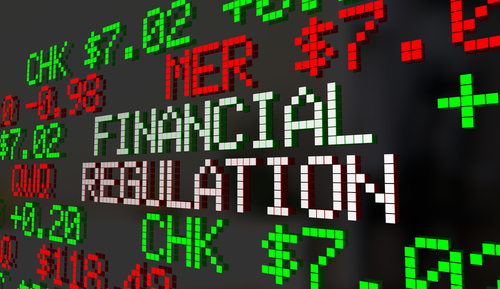Cryptocurrencies, including Bitcoin, have been in the news a lot lately, but many people still don’t know what they are—or whether they’re regulated. Here’s a quick rundown.
What Are Cryptocurrencies?
Cryptocurrencies are decentralized digital cash systems. Eschewing centralized control, such as a bank or government, cryptocurrencies instead rely on pseudonymous peer-to-peer networks—think Napster of yore—in which all actors in the network must recognize and reflect a transaction. To illustrate how this works, if Person A has an apple and trades it to Person B for her orange, Person A cannot thereafter trade that apple to Person C because everyone knows from a public ledger that Person A has already traded his one apple.
The security of the public ledger is then of paramount importance—so how do cryptocurrencies ensure ledger security? They rely on people called miners. Miners are basically the bookkeepers of the public ledger, and anyone with the time, energy, and equipment can be a miner. When a transaction occurs, it is not immediately added to the public ledger; instead, a miner must first confirm it. To do so, miners generate a complicated code that: (1) memorializes the data relating to the transaction; (2) refers to the previous confirmed transaction in the system (a sequential timestamp of sorts); and (3) complies with the particular cryptocurrency’s specific requirements. This is a challenging and necessary task that protects the public ledger—a transaction won’t be confirmed if a code can’t be generated that aligns with previous ledger entries. Using the earlier example, once Person A’s apple-orange trade has been confirmed, he can’t trade the apple again because any code generated after that reflects that he has already traded his apple. Without an acceptable code, no new transaction can be confirmed.



